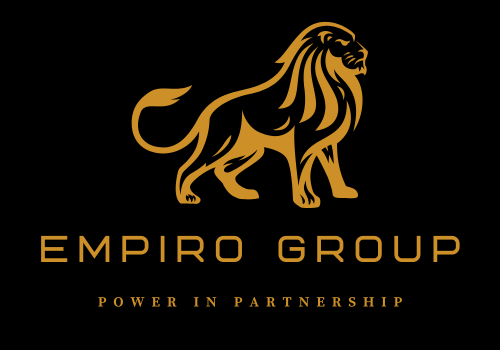The Empiro Approach: What We Look For in a Brand Partnership
At Empiro Group, we don’t just acquire businesses — we build relationships. As a holding company with interests across transport, travel, security, and consulting, our partnerships are built on a simple but powerful foundation: trust, shared values, and long-term vision.
We take pride in being the force behind the scenes — quietly driving operational excellence, strategy, and growth for the brands we believe in. So, what do we look for in a brand partnership?
. Integrity in Leadership
Founders and leadership teams with integrity always stand out. We value partners who lead with purpose, communicate transparently, and put their customers first — just as we do.
2. Alignment in Vision
We don’t believe in forcing fit. We look for businesses that align with our commitment to premium service, strategic thinking, and sustainable growth — whether in transport or consulting.
3. Operational Excellence
Strong fundamentals matter. We’re drawn to businesses with disciplined operations, clear processes, and a hunger to improve. Our role is to elevate, not overhaul.
4. Potential, Not Perfection
You don’t need to have everything figured out — that’s what we’re here for. We back businesses with momentum and untapped potential, not just polished metrics.
5. A Premium Standard
Whether it’s a chauffeured vehicle or a strategic advisory service, we expect — and deliver — a premium experience. The brands in our portfolio reflect that standard, always.
If you’re a founder or business leader looking for a partnership built on more than just capital, we’d love to talk. At Empiro, growth is strategic, success is shared, and our impact speaks for itself.
Consultants provide their advice to their clients in a variety of forms. Reports and presentations are often used. However, in some specialized fields, the consultant may develop customized software or other products for the client. Depending on the nature of the consulting services and the wishes of the client, the advice from the consultant may be made public, by placing the report or presentation online.

Such consultants are often called “contractors” since they are usually providing technical services (such as programming or systems analysis) that could be performed in-house were it not easier for the employer to operate a flexible system of only hiring such technologists at times of peak workload rather than permanently.

Some consultants are employed indirectly by the client via a consultancy staffing company, a company that provides consultants on an agency basis. The staffing company itself does not usually have consulting expertise but works rather like an employment agency. This form of working is particularly common in the ICT sector.

